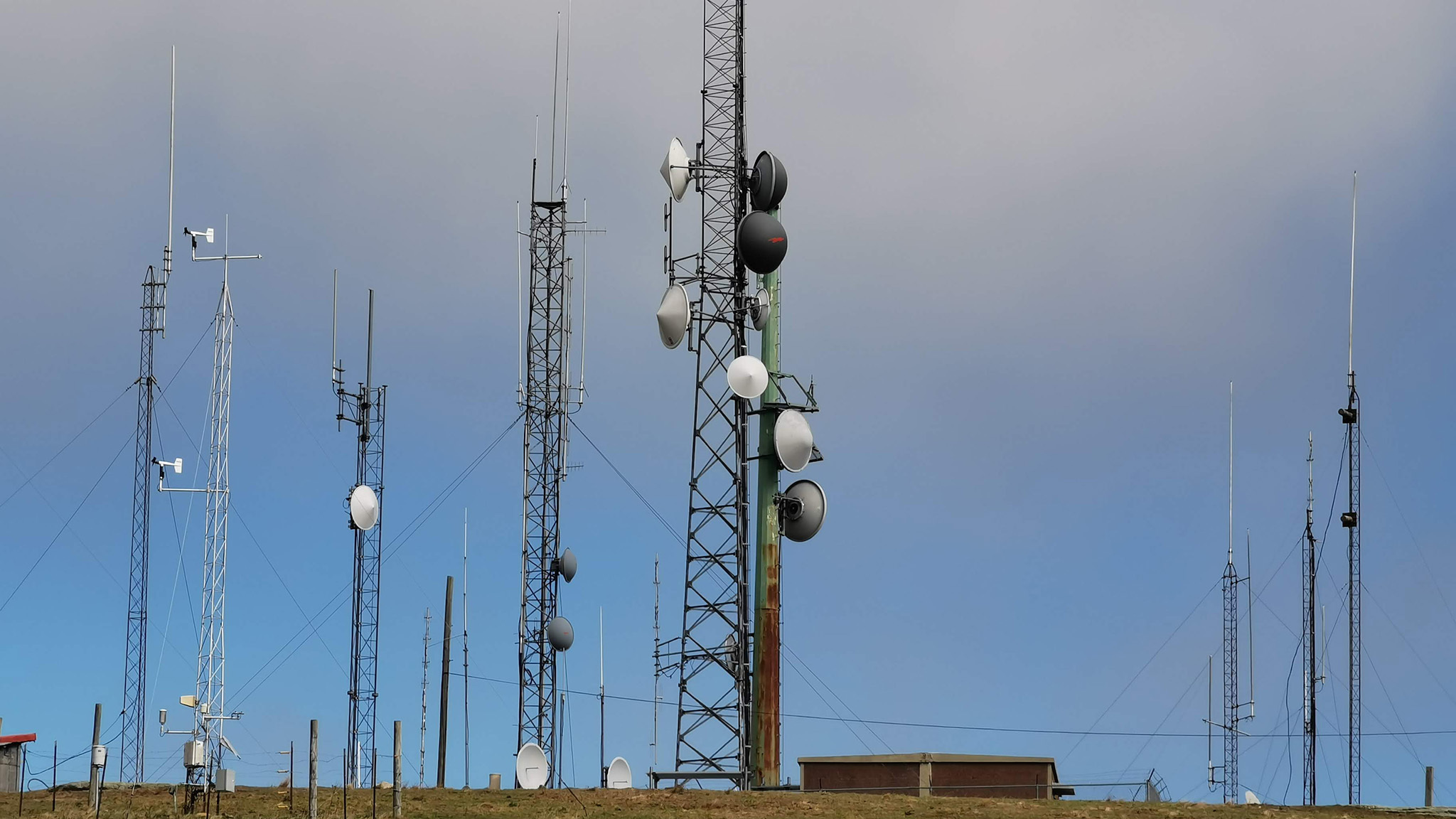Anker fixes one of the most annoying things about power banks
You can have all the power in the world.
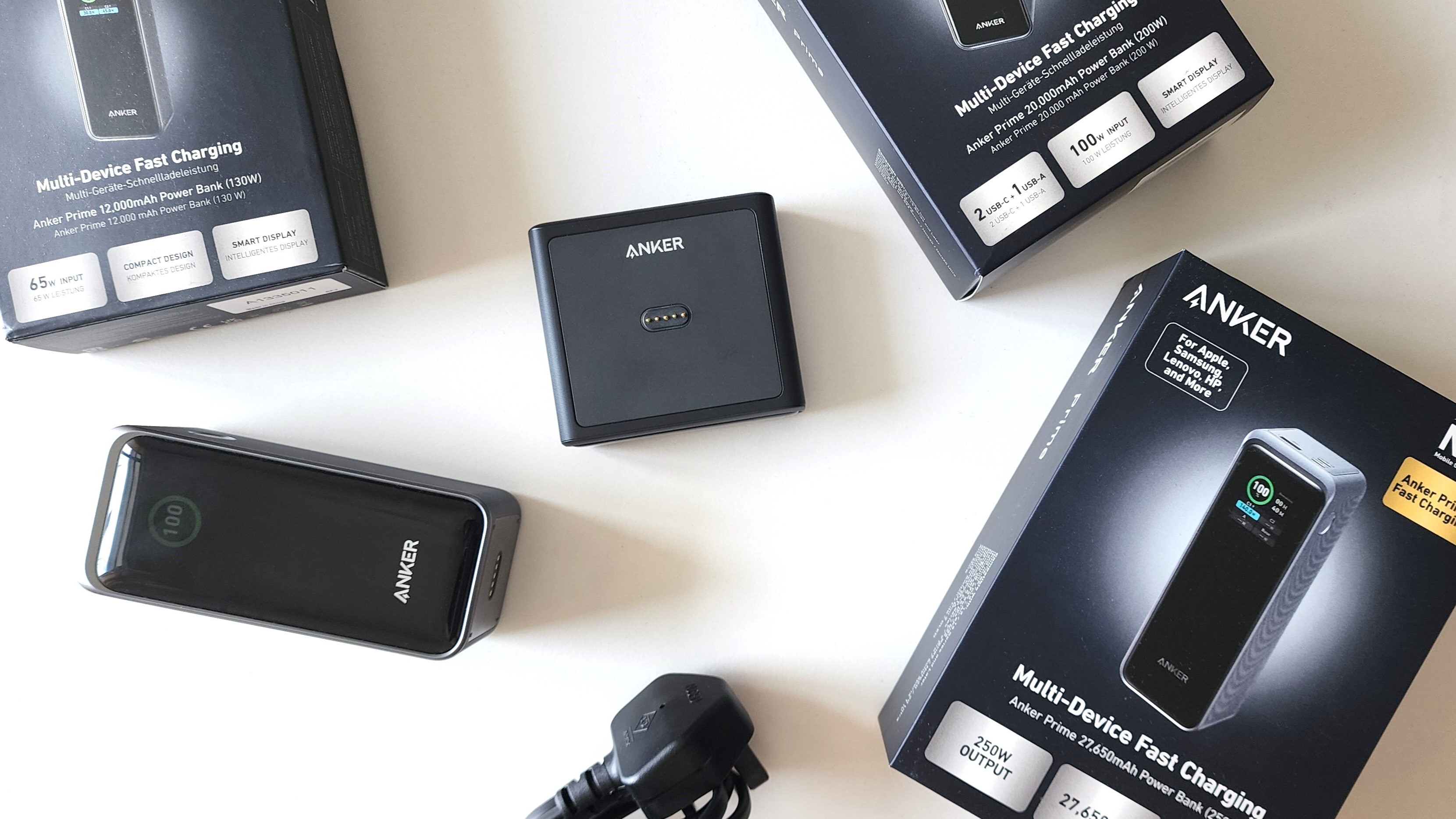

Join Namerah Saud Fatmi as she explores the cool, quirky, and sometimes downright odd world of smartphone accessories, gadgets, and other nerdy toys every week.
Anker does a fantastic job of giving us just the right charging solutions in shapes and sizes we couldn't conceive of on our own. A couple of months ago, the brand rolled out its Prime lineup of multi-device chargers, which includes power strips, bricks, and, of course, power banks.
What's really different about Anker's Prime power banks is that they support proprietary wireless charging. That means you can top one off without cables or cords, going from nought to full capacity in a few short minutes. Incredible, isn't it?
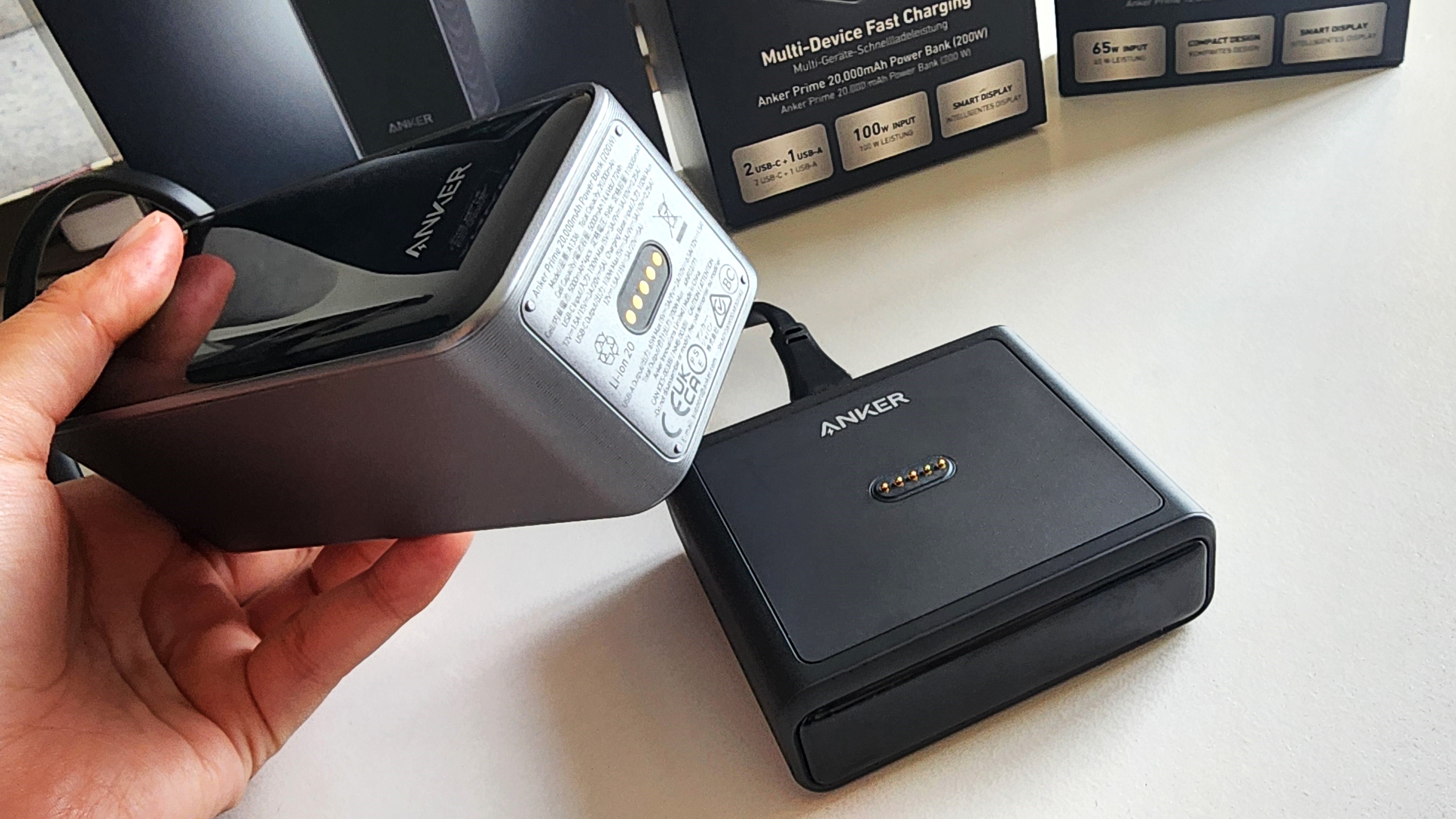
What Anker has done here is incorporate magnetic wireless charging pogo pins at the base of these power banks. As much as it improves the user's life, there is one catch: you need the 100W Charging Base to use the wireless charging feature. More on that later, but let's look at the available capacities and the number of ports each of those models has.
| 250W | 27,650mAh | 3 Ports (2 USB-C + 1 USB-A) | PD 3.1 | $179.99 |
| 140W | 24,000mAh | 3 Ports (2 USB-C + 1 USB-A) | PD 3.1 | $149.99 |
| 200W | 20,000mAh | 3 Ports (2 USB-C + 1 USB-A) | PD 3.0 | $129.99 |
| 130W | 12,000mAh | 2 Ports (2 USB-C) | PD 3.0 | $89.99 |
| 100W | Charging Base | 3 Ports (2 USB-C + 1 USB-A) | PD 3.0 | $69.99 |
Anker sent me all of the above, except for the 140W 24,000mAh power bank with three ports. I also received the 100W Charging Base to go with them.
Each power bank costs around $100, give or take $50 to $70 based on the rated capacity. You get a USB C-to-C cable and a soft carrying pouch with every portable power bank in the Anker Prime series, while the Charging Base comes with an AC power cord.
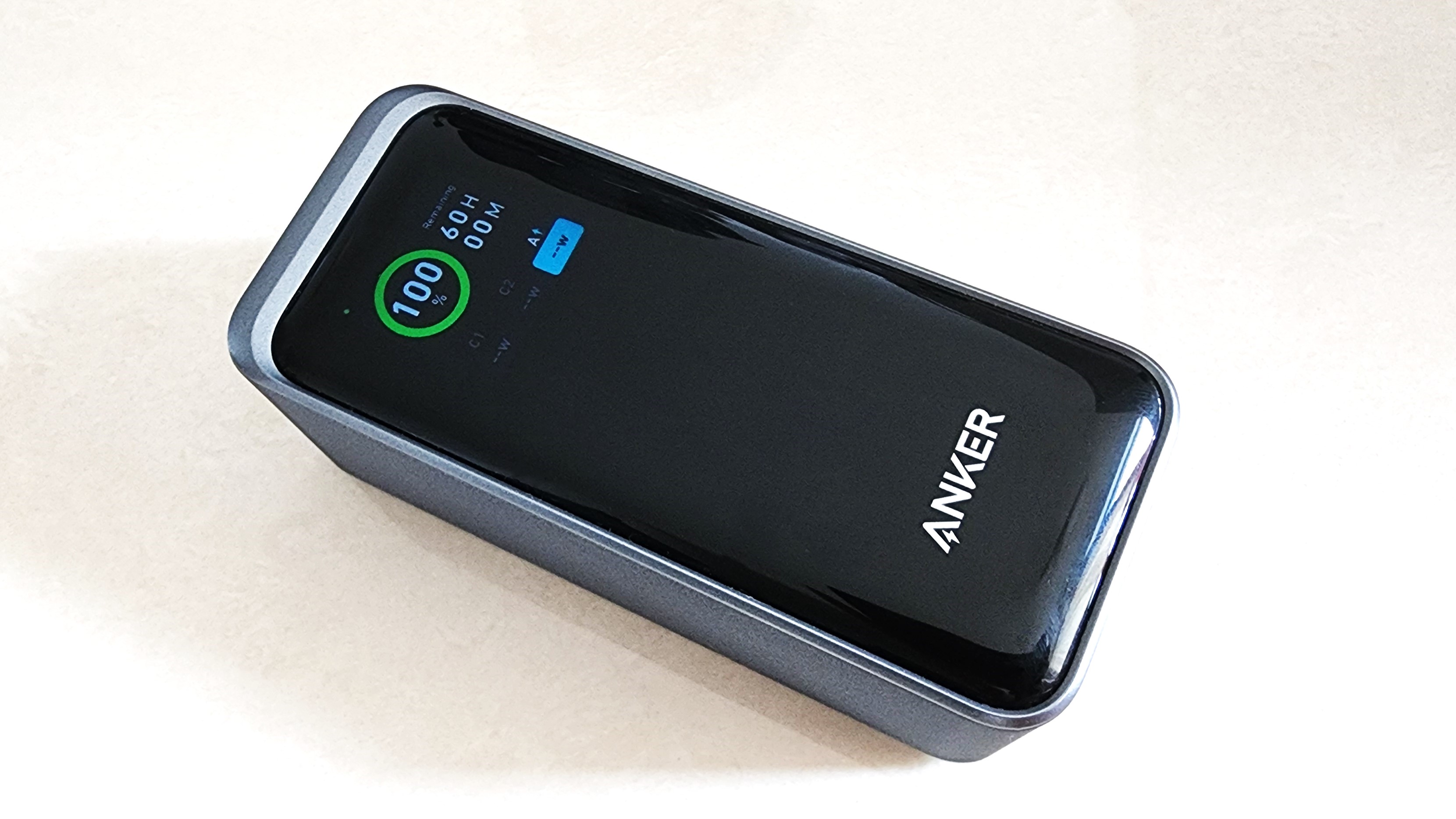
Every individual power bank in the Anker Prime series comes with a sufficiently bright LCD display that indicates the power input and output speeds, as well as other figures such as the battery level and hours/minutes of backup.
If you're a regular user of power banks and portable battery packs, you'll know that one of the most annoying things about them is recharging them. How many times have you picked up a power bank while heading out and then put it back because it was dead? I know I'm in that sticky situation pretty often.
Be an expert in 5 minutes
Get the latest news from Android Central, your trusted companion in the world of Android
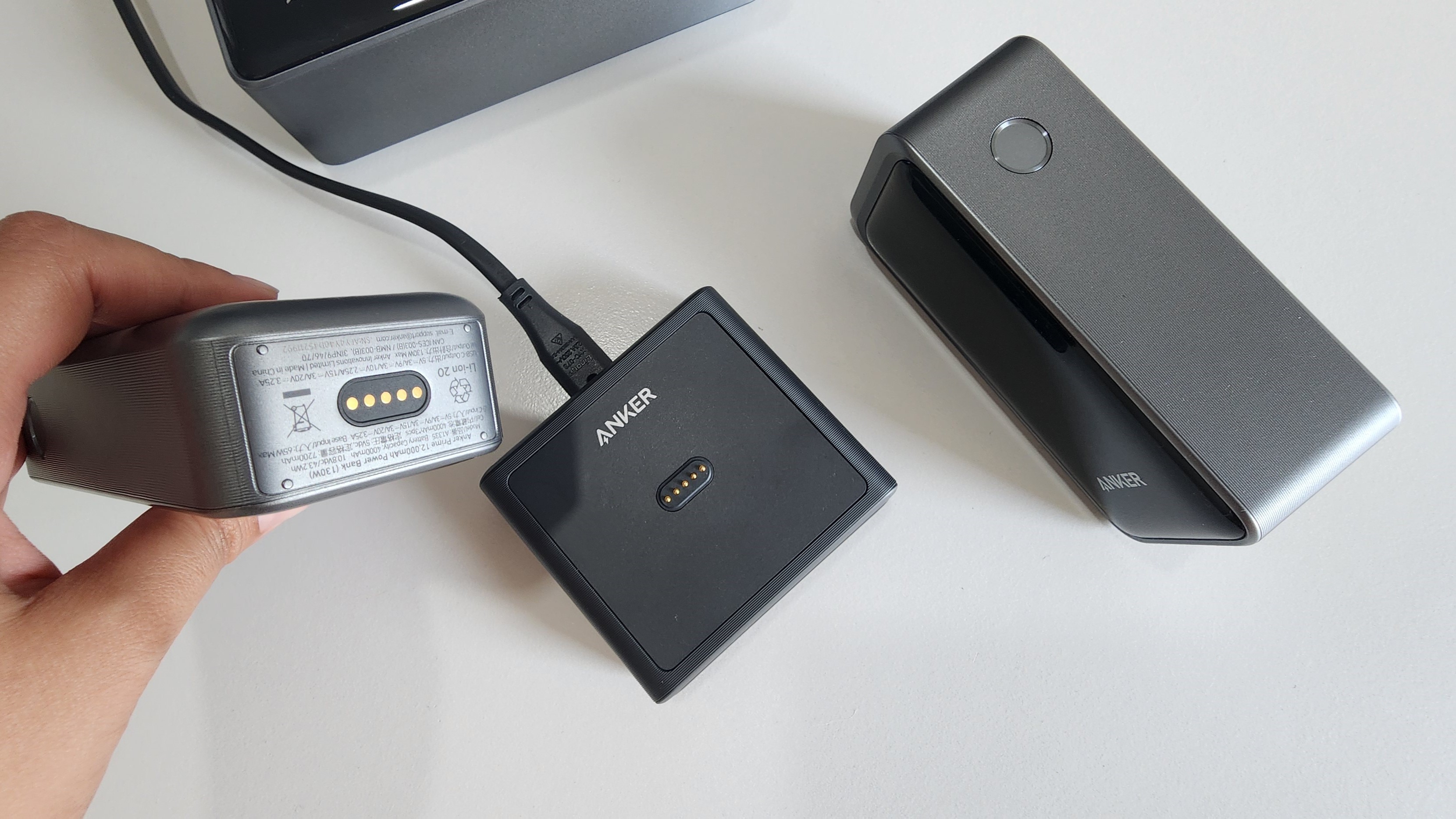
With Anker Prime power banks, you no longer have to worry about this. Even if your power bank is out of juice, all you need is 10 to 15 minutes on the 100W Charging Base to give you enough energy to recharge your phone at least once.
Since there are no wires involved, the process is even faster. This isn't even a plug-and-play experience; it's completely seamless.
Anker took convenience one step further by adding the LCD display. With one click of a button, you can find out just how much power your power bank has. It's the perfect product for anyone, really.
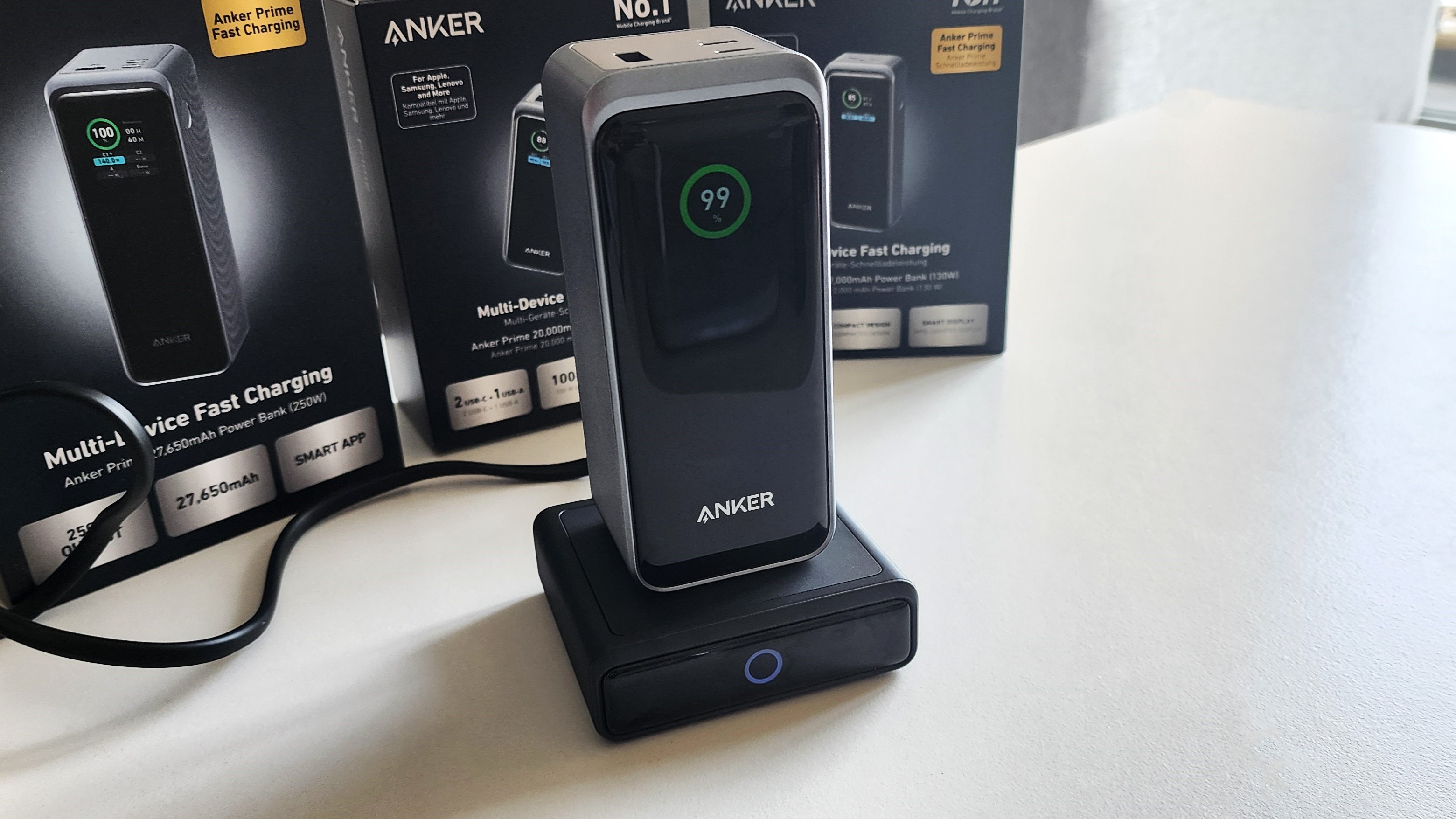
Even the pricing on these things isn't that bad. Think of it as a long-term investment for charging your gear on the go. You'll get 65W out of a single Type-C port on any of the Anker Prime portable chargers, which is good enough for smartphones, tablets, laptops, and Chromebooks.
And since nearly every Anker Prime power bank model has three ports, you can charge multiple devices at once. This includes the charging base, too.
The best variant out of this lineup is the 250W 27,650mAh 3 Ports power bank. Not only do you get all the aforementioned perks, but it also comes with Bluetooth built-in and app support. You may find that unnecessary, but wait until you hear that the portable charger also has a device finder inside, enabling you to locate it via Bluetooth in a pinch. How cool is that!?
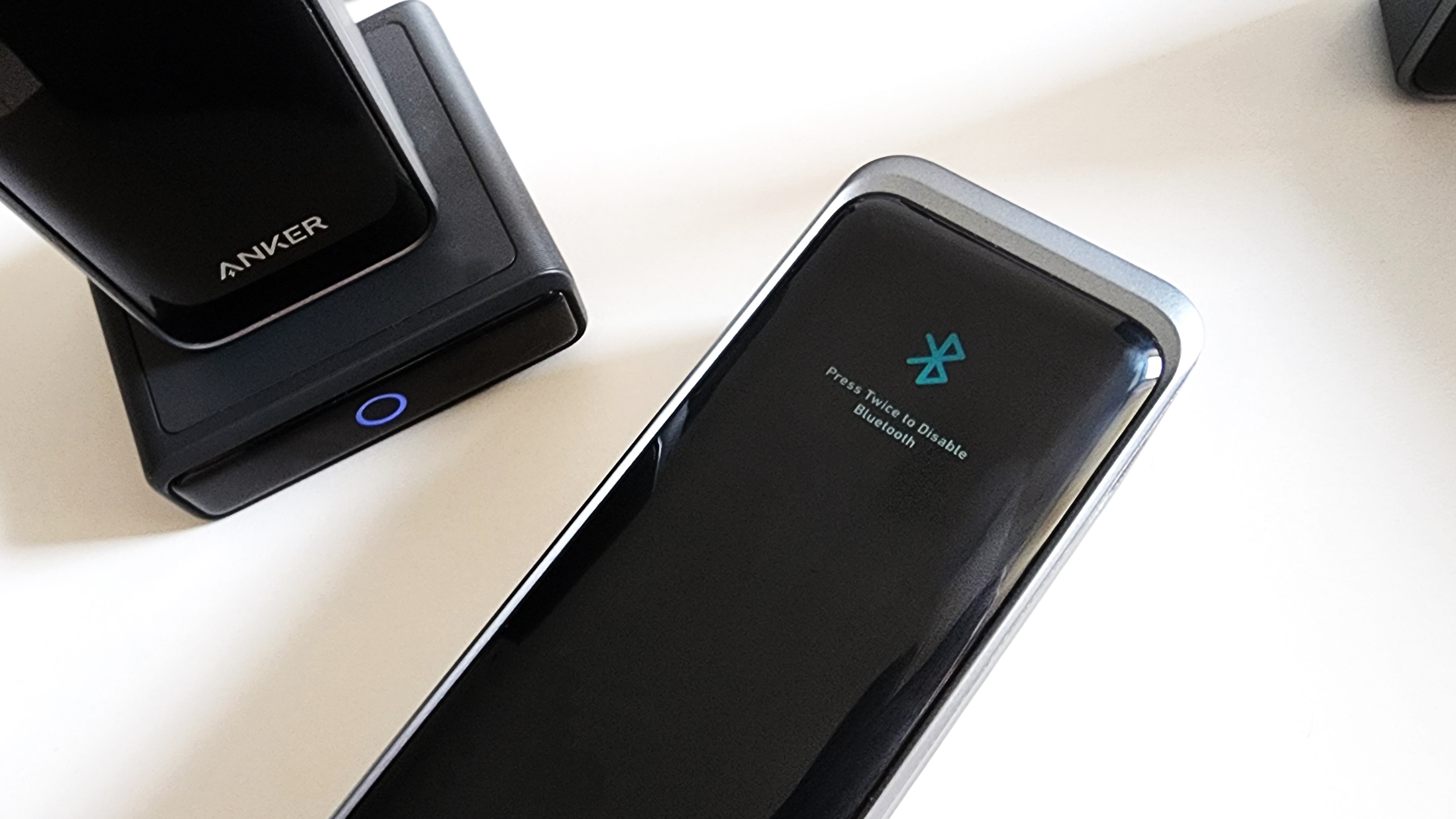
I'm really happy with these power banks so far. The one and only fault that I could find with the Anker Prime power banks is their bulk. However, this problem isn't exclusive to Anker. Any power bank that's over 15,000mAh is inevitably going to be heavy.
It's evident from the rounded, compact design of the Prime power banks that Anker tried its best to reduce the footprint of its products. The rounded corners and low-profile build make it easy to hold any of the Anker Prime power banks in one hand along with a phone.
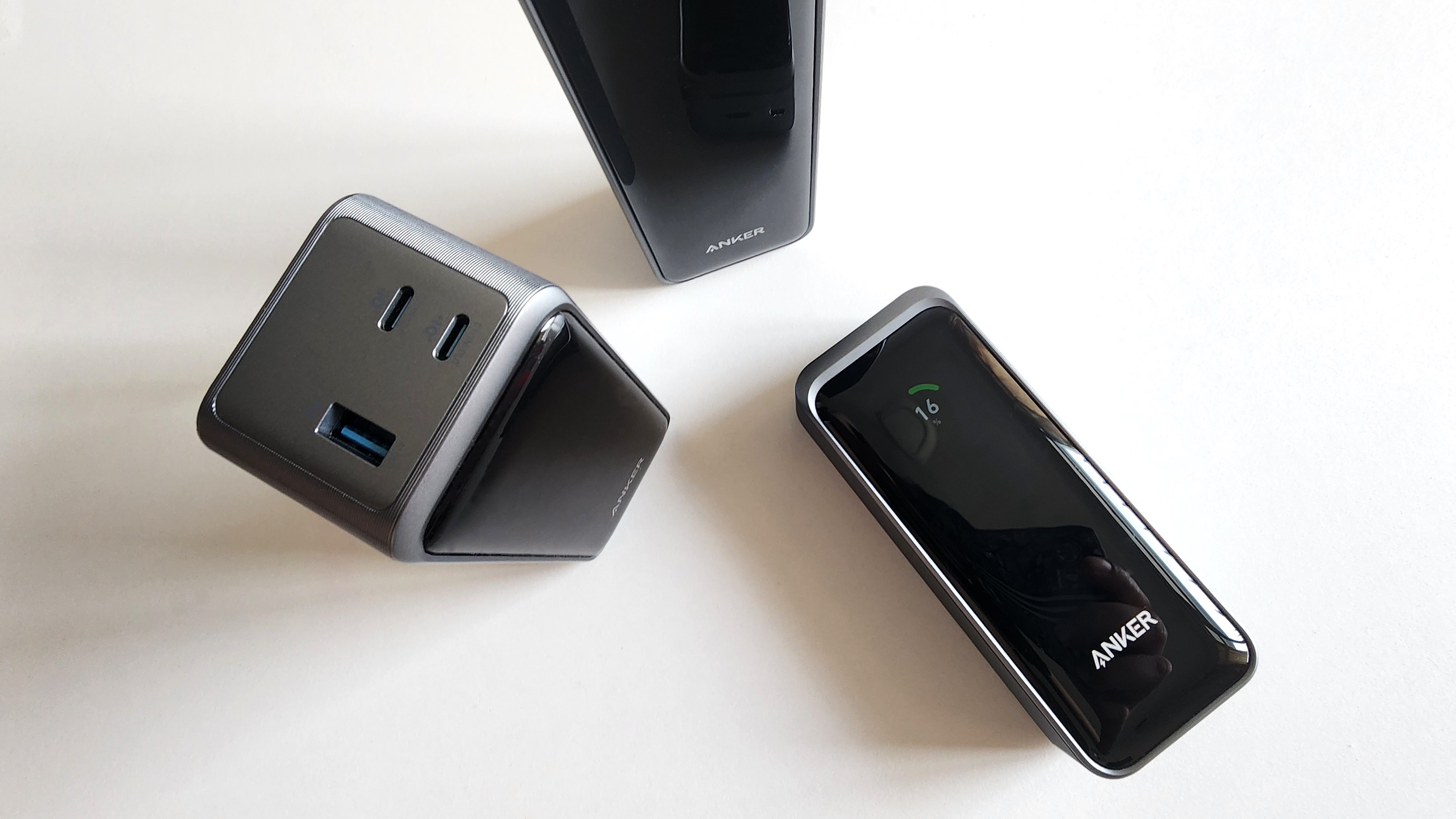
I think the bigger issue for regular people is probably going to be the Charging Base. Buying a power bank for around $100 to $150 can be justified, but the wireless charging base itself costs nearly $100. This adds up to a pretty hefty sum, and a power bank isn't something you'd usually be willing to splurge on unless you travel frequently.
What I recommend is to wait for a big sale to come around if you intend to purchase anything from the Anker Prime family of power banks. Some bundles include the 100W Charging Base, getting you a lot more value.
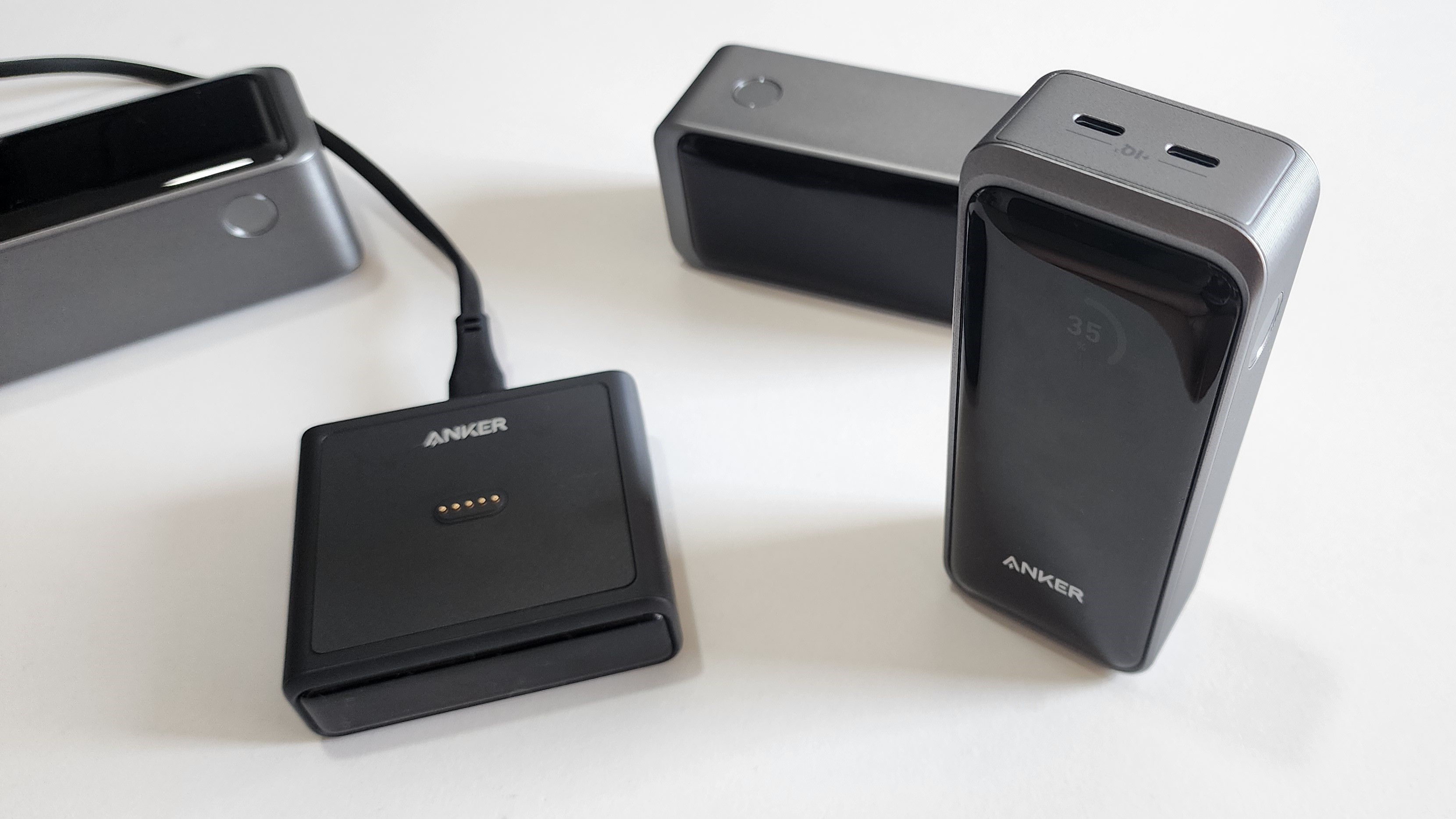
Having access to fast charging, Power Delivery, and Anker's clever heat management tech on the go isn't something to pass up. Grab a good deal, and you'll be very satisfied with these power banks. On top of that, Anker backs these products with a 24-month warranty.
If you're looking for something lightweight, the Anker Prime 130W 12,000mAh power bank should please you. Personally, I'd stick with something like the Anker Prime 200W 20,000mAh power bank, but that's because I'm a power user and have at least two to three devices with me at all times.
My final verdict is this: good job, Anker! I can't wait for whatever's next from the brand. The Bluetooth variant may be a little excessive, but enthusiasts will appreciate it.

Namerah enjoys geeking out over accessories, gadgets, and all sorts of smart tech. She spends her time guzzling coffee, writing, casual gaming, and cuddling with her furry best friends. Find her on Twitter @NamerahS.
-
taynjack It's a bit confusing to call these wireless. It seems this isn't what many understand as wireless charging per se, but rather plug less, or port less. Just because the wires are all contained inside the devices, the pogo pins are technically a very short wire.Reply -
Mooncatt Ok, if you find plugging something in to be annoying, you need to rethink your priorities.Reply -
taynjack Reply
Especially given that usb-c is reversible. No fumbling to figure out which way to turn the plug.Mooncatt said:Ok, if you find plugging something in to be annoying, you need to rethink your priorities.
